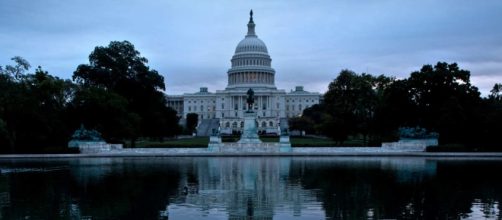The first Special Election of the Trump presidency took place in the 4th Congressional District of Kansas that had been vacated by Mike Pompeo to become Director of Central Intelligence. Democrats thought they might score an upset in the contest for the intensely red seat which has been held by Republicans since 1994. But, when the votes were tallied, they were forced to settle for what they called a moral victory of “only” losing by 6.8 percent, according to the New York Times.
The contest pitted Republican Ron Estes against Democrat James Thompson.
Estes enjoyed an infusion of campaign cash from national Republicans, robocalls from President Trump and Vice President Pence, and a visit by Sen. Ted Cruz for personal campaign appearances. Thompson got a similar amount of cash from the left-leaning Daily Kos and a group associated with Sen. Bernie Sanders.
The election results featured, as is typical for a special off-year election, a serious drop off of voters going to the polls as opposed to the last scheduled election. Fewer Republicans and fewer Democrats turned out. However, because Republicans generally win the seat by double digits, Democrats are proclaiming how they “really” won the race by making the Republicans work for it and losing by a narrower than usual margin.
However, voter turnout numbers do not suggest a sudden surge on the part of Democrats energized by their opposition to Donald Trump. 30,000 fewer Democrats turned out for an election they believed they might have a chance of winning than last November when they knew they had no chance. Despite a lot of bravado on social media, enthusiasm for the Democratic Party where it counts is listless and uninspiring.
Historically, the results of special elections in the first year of a new president’s term are one way to determine whether the American electorate has buyer’s remorse. Such is also considered an indication of how well the opposition party might due in the upcoming midterm elections. The special election in Kansas is the first of a number of special elections, but the results suggest that little or no backlash is happening against President Trump, despite polling data that placed him in the low 40s.
The next special election is scheduled to take place in Georgia where a single Democrat is leading against a slate of Republicans by a plurality. Even though that race is headed for a runoff, Democrats have even better hopes of scoring and upset than in the Kansas race. They are anxious to score a victory, any victory, to energize their base against Trump and the Republicans.

